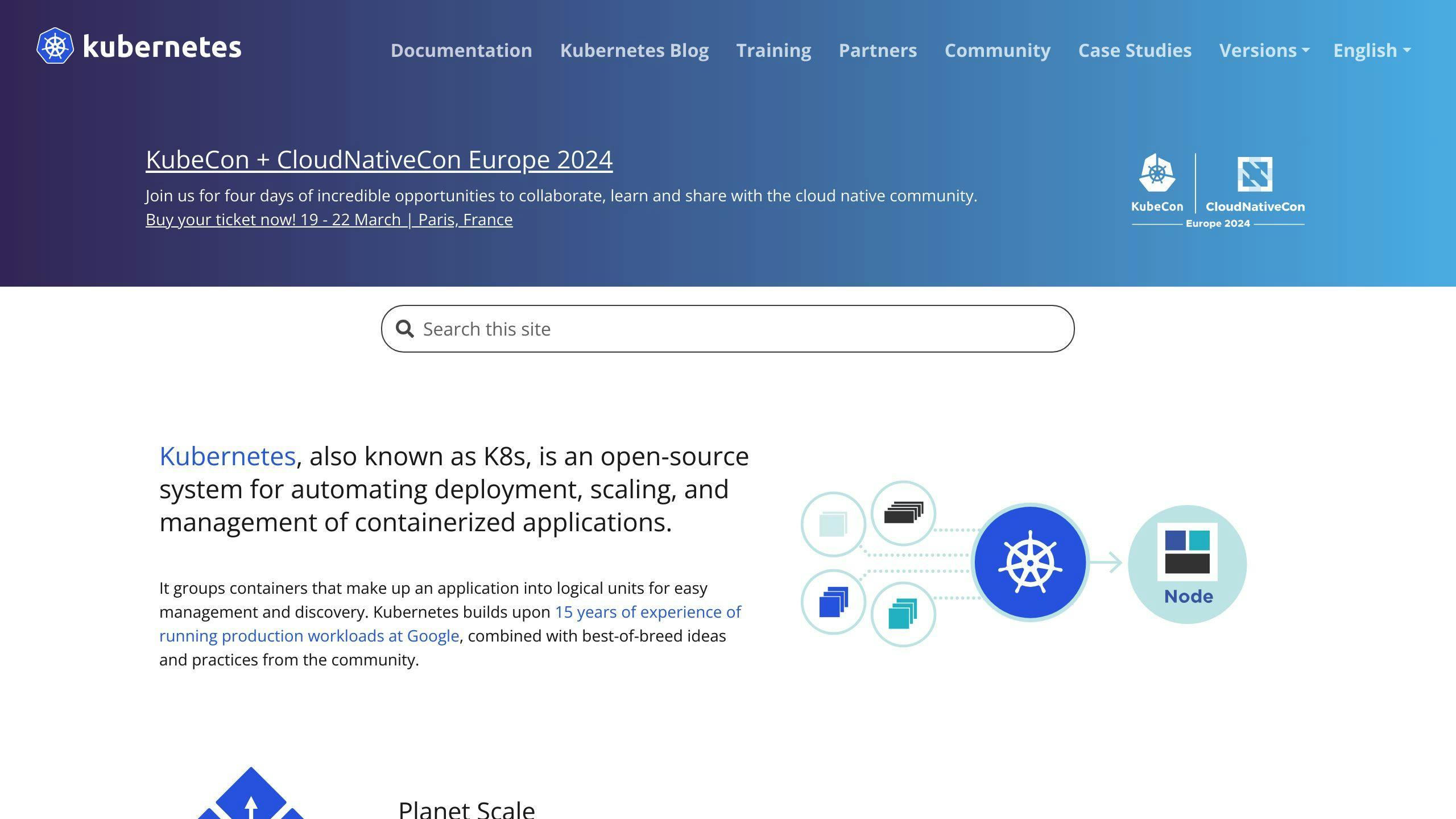DevOps skills are critical for full stack developers, blending development and IT operations to deliver software faster and more reliably. This guide highlights the best DevOps books, categorized by skill level – beginner, intermediate, and advanced. Here’s a quick overview:
-
Beginner Books: Learn the basics of DevOps culture and practices.
- The DevOps Handbook: Covers foundational principles like CI/CD and feedback loops.
- Effective DevOps: Focuses on collaboration, tools, and risk management.
-
Intermediate Books: Dive deeper into performance and reliability.
- Accelerate: Learn about metrics like lead time and deployment frequency.
- Site Reliability Engineering (SRE): Explore reliability goals, error budgets, and incident response.
-
Advanced Books: Tackle cloud-native systems and security.
- Cloud Native DevOps with Kubernetes: Master Kubernetes and multi-cloud management.
- DevSecOps: A Leader’s Guide: Integrate security into DevOps workflows.
Why DevOps Matters
- Higher Salaries: DevOps engineers earn an average of $124,392/year in the U.S.
- Better Results: Top teams deploy code 200x more frequently and recover from issues faster.
- Growing Demand: The DevOps market is expected to reach $10.31 billion by 2027.
Ready to level up your skills? Start with the books that fit your current expertise and pair them with hands-on practice.
Must-Read Books for DevOps Professionals in 2024
DevOps Books for Beginners
For full stack developers, these books offer the essential knowledge needed to bring DevOps principles into both development and operational workflows. Two books stand out for their detailed explanations and practical advice.
The DevOps Handbook
Written by Gene Kim, Jez Humble, Patrick Debois, and John Willis, The DevOps Handbook is a key resource for understanding DevOps basics. It introduces ‘The Three Ways’ – Flow (streamlining work from development to operations), Feedback (creating effective feedback loops), and Continual Learning (fostering experimentation) – as a practical framework for success.
This book is especially helpful for full stack developers, offering actionable frameworks to implement DevOps practices while bridging the gap between development and operations [2].
Effective DevOps
Effective DevOps by Jennifer Davis and Ryn Daniels focuses on the cultural and organizational challenges that often accompany DevOps adoption. It highlights the importance of collaboration, empathy, communication, and scalable tools to reduce deployment risks and speed up delivery [1][3].
The book outlines practical strategies in several areas:
| Focus Area | Key Strategy |
|---|---|
| Culture Building | Establish cross-functional teams with shared responsibilities |
| Tool Selection | Identify and implement suitable automation tools |
| Risk Management | Build strong CI/CD pipelines |
| Team Dynamics | Secure leadership support and align team goals |
These books combine technical insights with the cultural changes needed for successful DevOps adoption [1][2][3]. Once you’ve grasped these core concepts, you can move on to more advanced resources that dive deeper into DevOps strategies and implementation.
DevOps Books for Intermediate Full Stack Developers
Once you’ve grasped the basics, it’s time to explore resources that take a deeper dive into applying DevOps within your technology stack. Here are two must-read books that provide actionable insights for intermediate developers.
Accelerate: The Science of Lean Software and DevOps
Authored by Nicole Forsgren, Jez Humble, and Gene Kim, this book takes a data-driven look at improving DevOps performance. It introduces four key metrics that define success:
| Key Metric | Description | Industry Benchmark |
|---|---|---|
| Lead Time | Time from commit to production | Less than 1 hour for top teams |
| Deployment Frequency | How often code is deployed | Multiple times per day |
| Mean Time to Recovery | Time to restore service after an issue | Under 1 hour |
| Change Failure Rate | Percentage of changes causing problems | 0-15% for elite performers |
The research-backed strategies in Accelerate show how high-performing teams achieve faster delivery and better reliability [3]. While this book focuses on metrics, the next recommendation dives into the tools and methods to meet those goals.
Site Reliability Engineering (SRE)
This guide, created by Google, introduces reliability engineering principles that developers can start using right away. It focuses on three main areas:
| Focus Area | Key Concepts | Implementation Tools |
|---|---|---|
| Service Level Objectives | Setting measurable reliability goals | Tools like Prometheus, Grafana |
| Error Budgets | Balancing acceptable failure rates | Custom monitoring solutions |
| Incident Response | Handling issues without blame | Platforms for incident management |
The book provides clear steps for applying these SRE practices [3][2], helping teams improve reliability and efficiency while staying aligned with DevOps principles.
These books are excellent resources for bridging the gap between theory and real-world application, setting the stage for mastering advanced DevOps techniques.
sbb-itb-f454395
Advanced DevOps Books and Techniques
Building on earlier discussions about metrics and reliability principles, these books tackle modern challenges like cloud-native systems and integrated security.
Cloud Native DevOps with Kubernetes

Authored by John Arundel and Justin Domingus, this book is a go-to resource for developers working on cloud-native applications. It dives into advanced Kubernetes features, focusing on three key areas:
| Feature Area | Focus |
|---|---|
| Service Mesh Architecture | Managing microservice communication and routing |
| Multi-Cloud Management | Ensuring consistency across different cloud providers |
| Auto Scaling | Optimizing resources in distributed systems |
The book offers actionable strategies for managing multi-cloud deployments with Kubernetes, making it easier to handle the complexities of distributed cloud systems while maintaining scalability and consistency.
DevSecOps: A Leader’s Guide
This book zeroes in on integrating security into DevOps workflows without sacrificing speed. It covers practical methods for securing pipelines, ensuring infrastructure compliance, and adopting secure coding practices. Readers will learn how to automate security controls, maintaining both speed and safety in software delivery.
Both books prioritize actionable insights over theory, showing how techniques like service mesh architectures and automated security measures can directly impact metrics like deployment frequency and lead time. These methods are essential for achieving top-tier performance in today’s development environments.
Next, we’ll look at how additional training and community resources can further support these advanced strategies.
Additional Learning Resources and Training
With the DevOps market expected to grow from $3.42 billion in 2020 to $10.31 billion by 2027, staying up-to-date is crucial. Full stack developers can use a mix of structured programs and community-driven tools to sharpen their DevOps skills.
KodNest Training Programs

KodNest combines AI mentorship, practical projects, and career support to bridge the gap between theory and practice in DevOps. Here’s what their program offers:
| Feature | Details | Why It Matters |
|---|---|---|
| AI Mentorship | Personalized learning guidance tailored to you | Speeds up skill-building with focused help |
| Hands-on Projects | Work on real-world DevOps tasks | Gain practical experience with industry tools |
| Career Support | Mock interviews, hackathons, and job placement help | Opens doors to DevOps career opportunities |
While KodNest provides structured learning, tools like roadmap.sh add flexibility by offering peer-supported pathways.
Community-Driven Roadmaps
Roadmap.sh organizes DevOps learning into clear stages, making it easier to focus on what matters most:
| Stage | Key Skills |
|---|---|
| Foundation | Learn version control, CI/CD basics |
| Intermediate | Dive into containerization and orchestration |
| Advanced | Master cloud-native tools and IaC |
Communities like r/DevOps also share real-world tips and insights, making them valuable for developers looking to stay competitive in this fast-changing field.
Conclusion
Developers looking to grow their DevOps skills have a wealth of resources and training programs to help them succeed. The DevOps market is expected to hit $10.31 billion by 2027, making it a promising field for career growth and technical advancement.
For full stack developers, understanding DevOps principles is a game-changer. Top-performing DevOps teams deploy code 200 times more frequently, highlighting the efficiency gained through effective practices. This efficiency isn’t just about speed – it drives business results, with some organizations reporting up to a 25% boost in revenue growth after adopting DevOps strategies.
The books listed in this guide offer a clear learning path, covering everything from basic concepts to advanced practices. In the U.S., DevOps engineers earn an average of $124,392 annually, showing how much value companies place on these skills.
To make the most of your DevOps journey:
| Focus Area | Action Items | Expected Outcome |
|---|---|---|
| Foundation | Begin with beginner books and hands-on practice | Build a strong understanding of core concepts |
| Growth | Use community resources and training programs | Develop practical skills with tools and workflows |
| Mastery | Apply advanced techniques to real-world projects | Reach a high level of expertise |
Thriving in DevOps requires a balance of theory and real-world application, along with a commitment to continuous learning. Start today by picking a book from the list and combining it with hands-on practice or a structured course. With a projected 20% annual growth rate through 2032, the DevOps field offers plenty of opportunities for those ready to invest in their skills.





